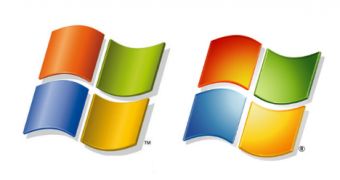Windows Vista is nothing compared to its predecessor, Windows XP. And in this context, Microsoft's latest operating system is not even close to a full replacement of XP. Despite of the five-year gap separating XP (released at the end of 2001) and Vista (launched at the beginning of 2007), the Redmond company has failed to produce an operating system that would make XP expired. Instead, it seems that XP - refreshed in 2004 with Service Pack 2, and scheduled for the following major updating in the first half of 2008 with Service Pack 3 - is not only far from obsolete, but also that it survives without any issues alongside Vista.
Consumentenbond (Consumers' Union), the top Dutch Consumer Rights Organization came to the conclusion that Vista is not an alternative to XP following a four-week long survey in which the first question is "Heeft u problemen met Windows Vista?" (Have you encountered problems with Windows Vista?). There are two answers available to users: Ja and Nee. And it seems that the vast majority of Windows Vista users did in fact come across issues with the operating system, and answering Yes, rather than No.
In just four weeks, Consumentenbond gathered a total of 4,200 complaints related to Vista. The operating system has had everything but a smooth ride since it was launched at the beginning of 2007. The platform was plagued with a variety of problems. Mike Sievert, Corporate Vice President, Windows Product Marketing during the Microsoft Worldwide Partner Conference 2007 in July, acknowledged that Windows Vista was released into a world that was not 100% ready for it. The issues enumerated by Sievert are synonymous with the ones delivered by Dutch Vista users: software, driver, compatibility and poor hardware support.
Since January, Microsoft topped the 60 million sold Vista licenses milestone, and claimed that compatibility and support are both at critical mass. And yet, Consumentenbond paints a different picture, with end users complaining about software compatibility, about lack of hardware and device support. 4,200 complaints in a single month are by no means illustrative of just isolated incidents. Sure, at the same time, 4,200 users are but a drop in the ocean of 60 million Vista customers, but the volume is by no means less impressive.
In excess of 59% of Dutch users of Vista pointed that the operating system had issues with software products. 46% complained about hardware problems, and concerns were also issued about slow performance of the operating system, and about the integration of Vista machines across networks. After concluding that Vista fails to measure up to the level of XP, Consumentenbond advised users to seek alternatives such as moving to Mac OS X and the Ubuntu distribution of Linux.
But moving to Mac OS X or Ubuntu Linux does not guarantee in any way that users will not be affected by the same issues that impacted Vista. Sure, Mac OS X coming on top of proprietary Apple infrastructures will not have hardware or peripheral problems, but software offerings for the platform are limited. And Ubuntu enjoys even less support from the hardware and software ecosystems than Windows Vista does. A more healthy approach to ensure that you will not run in any troubles with Vista is to turn to the Windows Vista Upgrade Advisor and to Windows Vista Hardware Assessment 2.0.

 14 DAY TRIAL //
14 DAY TRIAL //